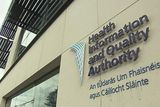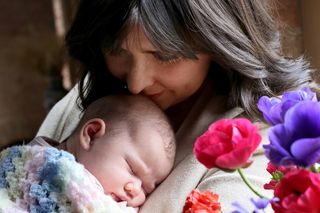Stop exporting our sick children, say top doctors
Leading paediatricians hit out at HSE 'stupidity'
Three of the country's leading children's doctors have launched a scathing attack on the Health Services Executive after it refused to fund two extra staff for a specialist unit that would allow seriously sick kids to be treated in Ireland instead of being sent abroad.
Dr Ronan Leahy and his colleagues at Our Lady's Children's Hospital in Crumlin, Professor Owen Smith and Dr Corrina McMahon, accused the health authorities of "exporting" our sick children at great cost to the taxpayer, and more stress to patients and their families, instead of investing in services at home.
"It's a no-brainer. Instead of spending money sending children to the UK, we could channel it into the expertise locally," Dr Leahy, a Consultant in Paediatric Immunology and Infectious Diseases, told the Sunday Independent.
"The typical Irish response to many of our 'problems' is to 'export' them, very often to the UK. While our patients have received very good care in the NHS system, it is time we grew up and took responsibility for our own children, and it is time to expand the existing service here," he added.
Stem cell transplants are carried out for children with cancer and aplastic anaemia at a state-of-the-art unit in Crumlin.
New research has revealed the success rate and standard of care at the facility is on a par with the best in the world.
Dr Leahy, Professor Smith and Dr McMahon said many more children with other serious conditions could be cured here if the HSE appointed an additional consultant and one senior nurse to the unit.
Each stem cell transplant carried out in the UK costs the HSE's Treatment Abroad Scheme (TAS) between €90,000 and €200,000, depending on the illness.
Prof Smith, who is a childhood cancer consultant and Regius Professor of Physics at Trinity College Dublin, told the Sunday Independent: "Our comprehensive business plan that we submitted to the HSE included a number of nursing posts, but we could start with the addition of a consultant and one nurse co-ordinator. This would cost in the region of €270,000 a year.
"We have the beds and could also transplant those children from the Republic of Ireland with serious conditions that includes sickle cell disease, Hurler's syndrome and immune-deficiency that are currently sent to the UK at great expense."
However, the HSE, for the second year in a row, refused to include the new positions in its service plan.
Dr Mahon, who is the lead haematologist of the sickle cell programme that treats patients suffering from genetic blood disorders, told this newspaper: "The cost of doing these transplants at home is far less than in the UK, so failure to fund the Irish centre to do this is short-sighted and absolute stupidity. The positions should be funded immediately."
Last year four Irish children were treated in Manchester for Hurler's syndrome, a rare genetic disorder that can lead to organ damage and death. One child was treated in Newcastle for severe immune-deficiency, while sickle cell transplants are carried out in London. According to Prof Smith, the cost of these treatments was €90,000, €180,000 and €200,000 each respectively.
This compares to the €540,000 spent by the TAS last year - which is twice the amount Prof Smith says is required to start these treatment services at home.
The three senior doctors spoke out as new research reveals that there has been a 100pc survival rate for children suffering with aplastic anaemia (APA) who were treated at the stem cell transplant unit at Our Lady's Children's Hospital, placing Crumlin's standard of care on an equal footing with the best international practice. All 23 children were diagnosed with severe APA between 1998 and 2014.
"The outcomes are as good as anywhere in the world and it is astonishing that the Department of Health and the HSE has not invested in the [expansion of] the programme," Prof Smith added.
"We have the beds, we have the patients and all that is needed for those children with conditions such as sickle cell disease and Hurler's syndrome, to be treated here, is an additional consultant paediatric haematologist with a special interest in stem cell transplantation."
In response to queries about the request for funding, the HSE said in a statement: "This was considered as part of the estimates process for 2015. However the context of the available funding for the acute hospitals, it was not possible to fund these posts in 2015."
It added: "In order to comprehensively resource the service there are a number of posts, including nursing posts, that would be required to support the service development. Crumlin delivers a high-quality HSCT (Hematopoietic Stem Cell Transplantation) programme with the current staffing structure and an allocated budget for 30 transplants annually."
Join the Irish Independent WhatsApp channel
Stay up to date with all the latest news














